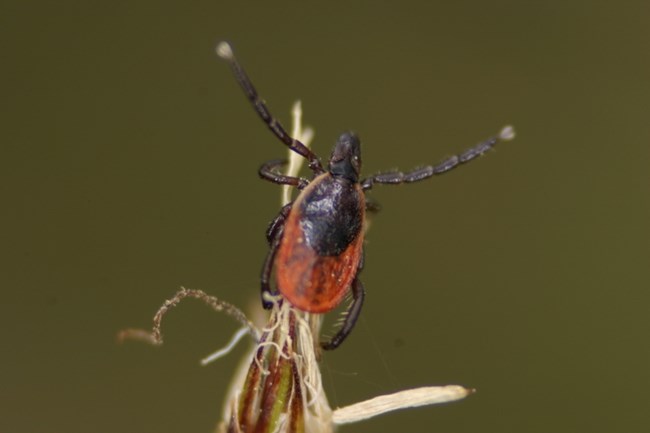
NPS Photo / Sleeping Bear Dunes National Lakeshore Tick-Borne Disease
For more information about tick-born disease, how to prevent infection, and how to find and remove a tick, visit the National Park Service Tick-Born Disease webpage.
Mosquitoes contract West Nile Virus (WNV) after biting infected birds. There is no vaccine and no specific treatment, medication or cure. Most people who become infected have no symptoms. When symptoms do show - usually 3 to 15 days following the bite of an infected mosquito - they range from fever, aches and rashes to meningitis and encephalitis. Some guidance to prevent the contraction of WNV include:
For more information, consult this National Park Service WNV Fact Sheet.
Although rabies is controlled among domestic animals it is not easily controlled in the wild. Major carriers of rabies in the wild are racoon, fox, skunk and opossum. These animals are fairly nocturnal. Signs of rabies infection may show as animals appearing in open areas during daytime acting disoriented, lethargic or agitated. The best way to help control rabies is to report any odd behavior seen in wild animals to your local animal welfare agency. Another way to help control the spread of rabies is to keep domestic pets on a leash when they are outdoors. Letting them roam freely through natural areas or parkland raises the possibility of an encounter with a rabies infected animal. Wolf Trap National Park for the Performing Arts states in it's Park Compendium that all domestic animals brought into the park must be on a leash. |
Last updated: November 13, 2019
